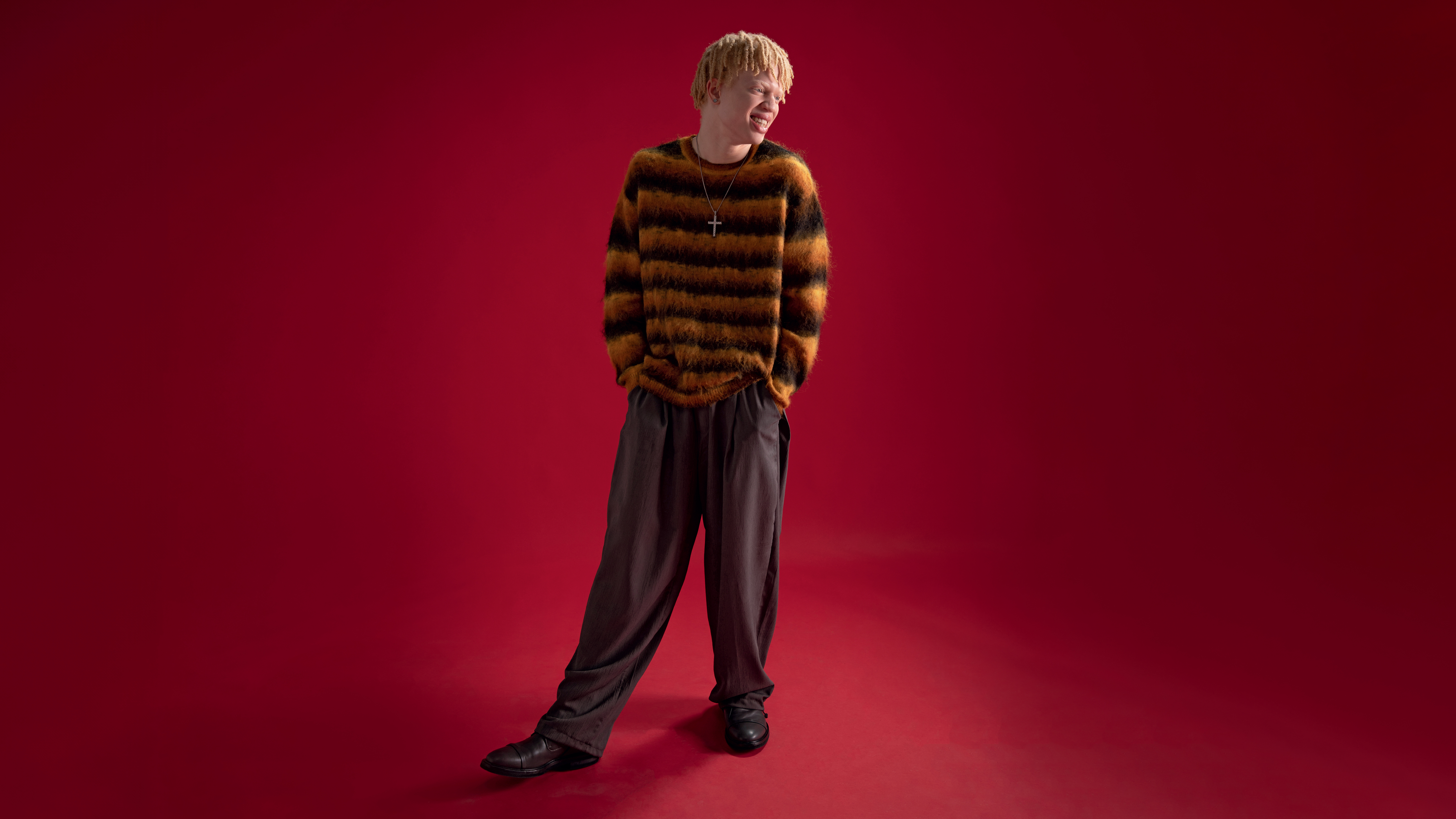“If you ever see anyone with a disability, or a visible difference in any TV commercial, they will likely be Zebedee talent,” says Laura Winson, CEO of Zebedee. Zebedee is a global talent agency representing adults and kids with disabilities, visible differences, and trans and non–binary people. If you have not heard of Zebedee, you have most likely seen their talent feature on TV and adverts, or heard the voice overs, or seen content on Instagram, while scrolling – the list goes on. Plus, Zebedee models featured in a Channel 4 documentary earlier this year, called New Model Agency. Talk about impact?!
Disrupting the industry
From designer names, such as Burberry and Gucci, to high street brands like River Island, M&S and Primark – plus technology and automotive – Zebedee is working hard to encourage brands and agencies to be more inclusive. On the day we speak, Laura tells me that Zebedee has bookings with Apple, Channel 4, Nike, music videos and supermarkets. “Day in day out, it could be anything,’ says Laura. “We work so hard and are so happy to see so many people feature.”
But it’s a contrast to where things were back in 2017, when Laura started the business with sister–in–law Zoe Proctor, following a “lightbulb moment”.
Laura explains: “By background, I’m a social worker and was working with people with a variety of needs, and Zoe was a performing arts teacher for people who have learning disabilities. Zoe had modelled for many years and my little girl was modelling at the time. We were having a chat one day about the lack of representation in the media; the lack of roles for people with disabilities; and how agencies were not representing disabled people, and we just had a lightbulb moment.”
Laura and Zoe made their mission to positively impact the media and set about creating an inclusive modelling agency. “Disabled representation was so poor at the time, and while there is still a long way to go, it is a different place to what things were like back then. There were no conversations around disability before we launched.”
It was hard to get the business off the ground “because nobody had ever done it before, people couldn’t really even understand the concept of a disabled model,” says Laura. “Disability is the last thing people think about when it comes to diversity, but it’s the largest minority and will impact all of us at some point."
It wasn't really until after lockdown in 2020 something changed: "Because of Covid, people felt a little bit more vulnerable and understood more about the vulnerable people in society. There was a reset in public consciousness. Then there was the Black Lives Matter movement - people thought more generally about the discriminated people in society, and it had an impact."
As the business grew, Laura and Zoe had a big job to educate businesses and change perceptions. They have encountered many barriers, including outright discrimination; businesses fearing doing something different; (perceived) access issues; and the worry of tokenism [doing something only to give the appearance that people are being treated fairly].
“What we try and reiterate is, it isn’t that hard to make things accessible, sometimes it’s just a small adjustment needed. And in terms of tokenism – if you are not going to book anyone with a disability because of that concern, it'’ actually even worse because now you are completely excluding a huge proportion of society.”
While change is slow, Laura has seen their work pay off. “Big brands do think about their bottom line,” she says, “so it makes business sense, as well as ethical sense for them.”
Representation matters
The impact Zebedee is having on disability representation in the mainstream is undeniable.
“When we first launched, the statistics said that 0.06 per cent of people featured in advertising had a disability – in fashion, it was even lower at 0.01 per cent. Now those stats are thought to be, depending on where you look, between one and four per cent. So it’s still really low, and we have a long way to go before we reach the 20 per cent that would be truly representative of society, but it’s a huge jump from where it was before,” explains Laura.
Zebedee has played a part in this increase. “We have made it easy for casting teams to find the right people for their brief,” adds Laura. Beyond the business side of things, there’s the personal impact of modelling for their talent, such as increased levels of confidence and self esteem, plus new–found friendships and financial independence.
“People are accessing their communities, making friendships and supporting each other. Plus there’s the financial side: they have made some good money from doing it, some people have managed to buy a house out of their earnings,” says Laura.
And for the audience, many more people feel represented, included and part of society.
Laura adds: “Representation is important for feelings of self–worth and aspirations. The parents of some of our talent have said when their child was born, it was such a lonely place and there was no representation. They said that being able to see representation in advertising had a huge impact on them.
“The wider impact of seeing representation in toys, books, television and film, makes the world a better place to live. It rebuilds a better acceptance and understanding of the diverse world we live in.”
If you’re interested in modelling, acting, presenting, or becoming a content creator, visit the Zebedee talent website.





